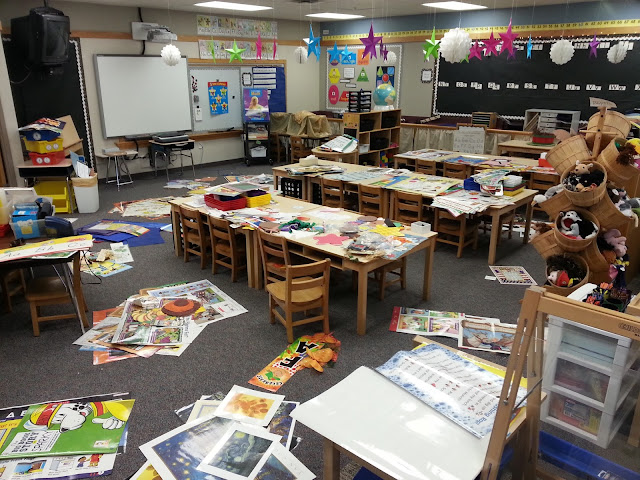The Science of Reading and The Joy of Reading are Partners
Children should learn how to seek out, browse, and swim through stacks and shelves and bins and carts and displays full of diverse books.
They should pick at, tip forward, pull out, flip through, consider, and replace or check out books.
Every student in every grade should walk up and down every aisle of shelving in their school library, noticing and exploring, touching books no matter how tall or short they are.
They should ask me for help with the pronunciation of a word, an explanation of an award or seal, the location of a topic, and a reminder of the author's name of the story I shared. They should know that they can ask me how to use a shelf marker, how to navigate a table of contents, and the order of a title in a series. They will come to know that they can tell me that their family doesn't want them reading certain books and that I can help them explore our resources while being respectful of their family's decisions.
Students should ask questions. Students should be taught how and encouraged to seek out information to answer them. Some of that information will be written above or below their reading level. They should be allowed to check out any resource, no matter its Lexile. The student selection of reading material is how they support their own teachable moments, and this act of self-teaching should be encouraged and supported. Human beings learn how to bake cookies by following the steps in a simple recipe, and we learn more about our elderly parents' dementia by speaking to experts and reading rather more sophisticated books and medical journals. We look up the definitions of the words unknown to us. We find out how to pronounce names, vocabulary, and titles. Adults may select reading material rated at any level of text complexity whether we understand it easily or require help. Students have the same right to access books professionally curated by school librarians, and they should not be given the impression that their own interests, their own curiosity, will be allowed front and center only after they've reached some proficiency milestone or score.
Students should come to understand what a "good fit" book is for themselves by exploring books that are diverse in topics, genres, writing styles, and reading levels. They should be allowed the time to develop this awareness, and be reminded that their interests and abilities will continue to grow and change.
Students should help and share with one another. They too, are guides on the side.
Students should stop reading a book they've selected when they don't like it, or when it isn't giving them the information or the feeling that they wanted or needed. They should return the book immediately (without waiting for their next scheduled library visit) and select a new one.
*****
Classroom teachers, reading specialists, and interventionists teach students the mechanics and strategies of reading. School librarians such as myself teach students how to find and access materials that they want and need. In this either/or world, educators should recognize how the science of reading and the joy of reading work in concert to grow and encourage lifelong literacy.



Comments
Post a Comment